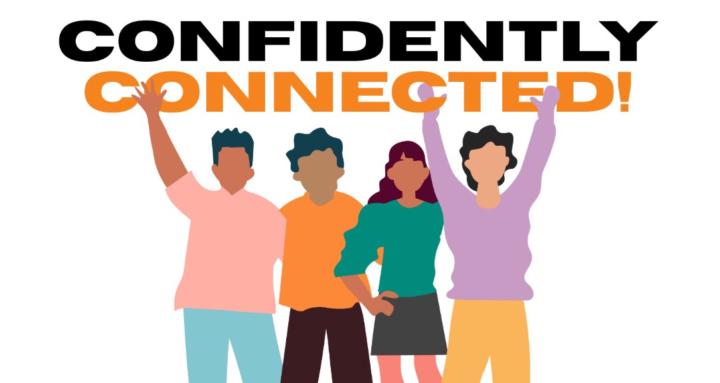
Write something
Great alternative to "how are you?"
"good. hbu?" but sometimes they're not good are they? and tbh I get it, not everyone is someone you trust enough to open up to, but sometimes even close friends need a little nudge. My alternative that has worked great: "Hey how are you, better or worse than the last time we met?" This form of contextual anchoring gives perspective and helps them open up. I hope this helps!
1
0
3 Mindset Shifts that Made Me Dangerously Confident
In any conversation there are subtle moments where the person you are talking to decides if to listen to you or not. They subconsciously look at how confident you are: your body language, tone of voice, eye contact (among many other things) and they decide: "this is someone worth listening to". That appearance of confidence can make or break a social interaction: whether that person you just met wants to be your friend, or if the girl says yes to going on a date with you. But if you focus on all these thousands of microexpressions that you making in every conversation, you'll probably go crazy. In my social journey, I've found a better way and its to focus internally. Our minds send signals to our body that echo what we truly believe. If you believe that your not worth listening to, your body will naturally mirror this (in your expressions, body language etc) and the person you're talking to will pick up on these and they will likely agree. But the flip side is also true! If you think you're a catch, you'll appear more like a catch and the person is more likely to thing so, if you think you're funny, they're more likely to laugh. If you truly think what you have something good to offer and interesting to say , it's going to trickle down into how confident you appear and people will believe you. But how do you develop this internal confidence? It starts with self-beliefs and these are 3 that have helped me to be myself, to do bold things in life, and seem confident while doing it. 1. "I will always be okay" - This helps me to take social risks because it lets me put aside the catastrophizing and "what-ifs" about social situations. It reminds me that even if people judge me or I say a joke and no one laughs or I bomb on stage that I will still be breathing and living and have people that love me - this has given me the freedom to live life more fully, to go up and talk to people, do public speaking, or ask out the girl. 2. "What I have to say is worth sharing, simply because I think it is" - Ever thought of a funny joke or something you wanted to say in conversation but talked yourself down? That's exactly what this mindset helps combat.
More knowledge = better conversations
Dale Carnegie writes in "How To Win Friends and Influence People" of former US president Theodore Roosevelt: "Whenever Roosevelt expected a visitor, he sat up late the night before, reading up on the subject in which he knew his guest was particularly interested." Having deep knowledge of a subject let him speak and connect with people that were also interested in that subject. Because of this, he managed to charm and win over almost everyone that he spoke with. A similar theme appears in the biography of Thomas Jefferson, another US president. "His powers of conversation were great, yet he always turned to subjects most familiar to those with whom he conversed, whether laborer, mechanic or other." And he was able to turn the conversation to subjects that interested the people to whom he was because he was extremely curious about everything. He understood a little bit about almost every subject: science, politics, agriculture, religion, law, etc. These two former presidents had an enormous curiosity that led them to constantly acquire new knowledge. With such a wide range of knowledge, there was always something they could talk about with anyone. So that's my point: Having a wide range of knowledge about the world facilitates conversations because it creates more avenues for connection, it creates hooks for people to latch onto when they speak with us. A narrow range of knowledge makes it harder to speak with people because you can only speak about a few things. A person who knows everything about chemistry and nothing about dancing will have a hard time speaking with someone who knows everything about dancing and nothing about chemistry. I am basically arguing that if you want to be a great conversationalist like Jefferson or Roosevelt, you have to be knowledgeable. Acquiring such world-knowledge is certainly challenging, but it starts from simple curiosity. So I will try my best to learn and read as much as I can, to become knowledgeable about different subjects, because this will make it easier to form connections with people. Of course, I encourage you all to do the same.
How to have deeper conversations!
A few months ago I had a great conversation with top community member @Bruno Avelar all about meeting people and having more meaningful conversations! I've been converting the 90+ min convo into videos and this was the first one! Alot of my subscribers seemed to like it so I figured I'd share it hear too! @Bruno Avelar you've been crushing it man! You've been real inspiration for me to keep making this type of content, keeping this community alive and for me to improve my own social skills! 🫶🏾
Interesting vs Likeable
I recently spent a week working as a summer camp supervisor and during this time I got to know and interact with some of the other supervisors. My experience with them taught me a lesson that I’d like to share here. There was one supervisor (we’ll call her Anna) who was one of the most interesting people I’ve ever met: To list a few things, she sold a startup when she was a teenager, spoke a bunch of languages, studied physics and political science while simultaneously working in private equity in London, traveled around the world, you get it. The type of person you instantly want to learn more about. And there was another supervisor (we’ll call him James) who was a bit more—for the lack of a better word— “ordinary” than Anna. He was in university studying medicine and other than that he just seemed like a regular guy. What struck me was how I felt around each of them. When I spoke with Anna, she would often talk about super interesting things, but never seemed quite interested me. When I spoke with James, on the other hand, he made me feel like a very interesting person and seemed genuinely curious to learn about me. Don’t get me wrong—Anna was a lovely person. But when the week was over, the person I most wanted to remain friends with was James and not Anna. The way he made me feel was significantly more important than how “interesting” he was. The moral of the story: * Try to find the people in your life that make you feel like an interesting person. That is a key attribute for a real friendship. * Don’t worry too much about appearing “interesting”. Worry about appearing INTERESTED. Let me know what you guys think!
1-13 of 13
powered by

skool.com/confidently-connected-3256
Helping guys go from shy, awkward and unsure, to confident, charismatic, and unforgettable in every social setting! 💪
Suggested communities
Powered by


